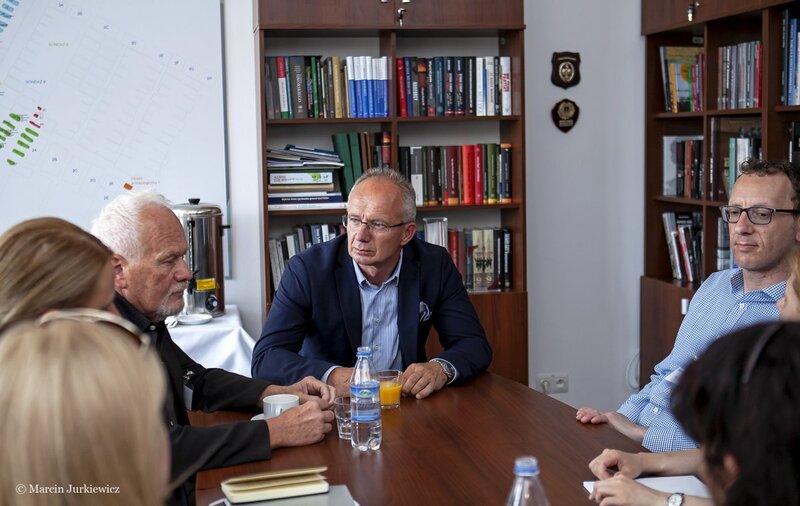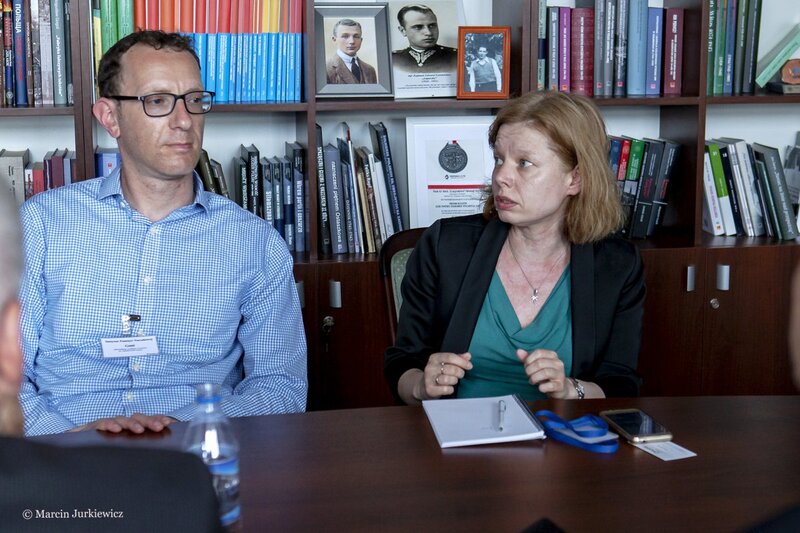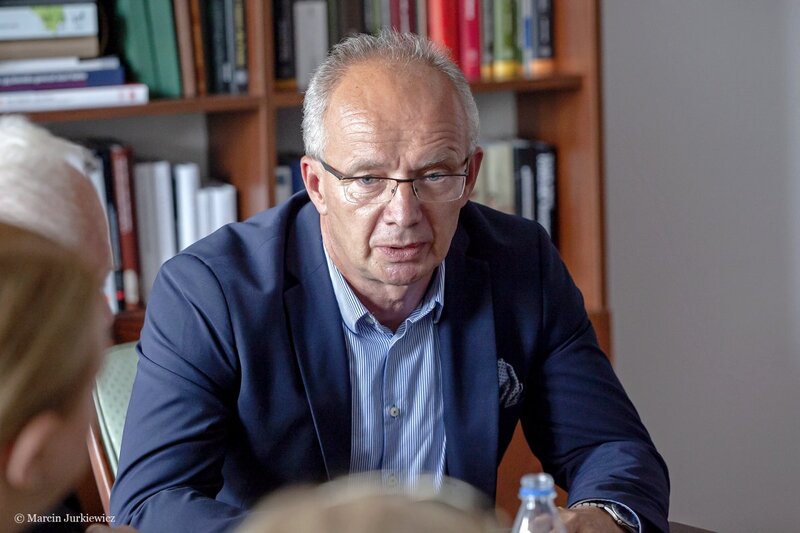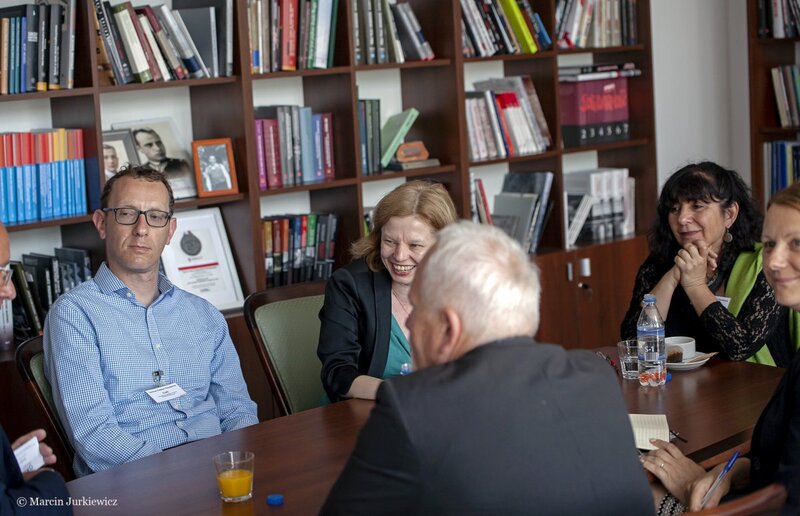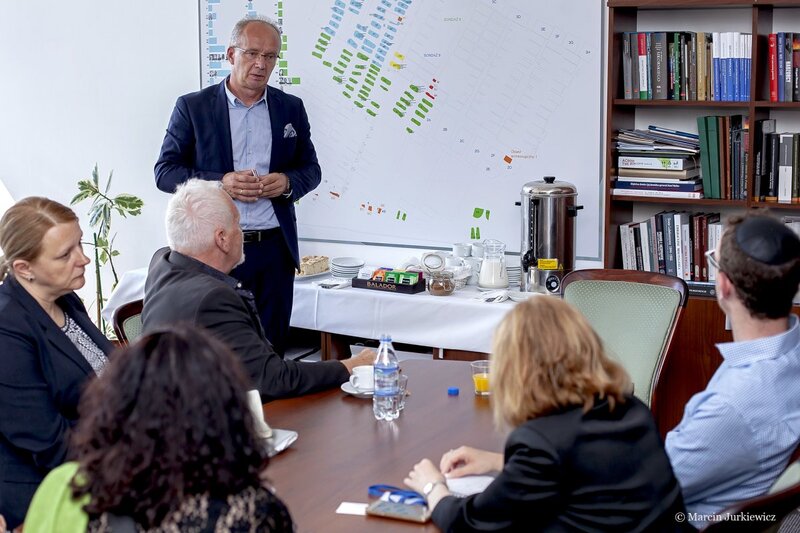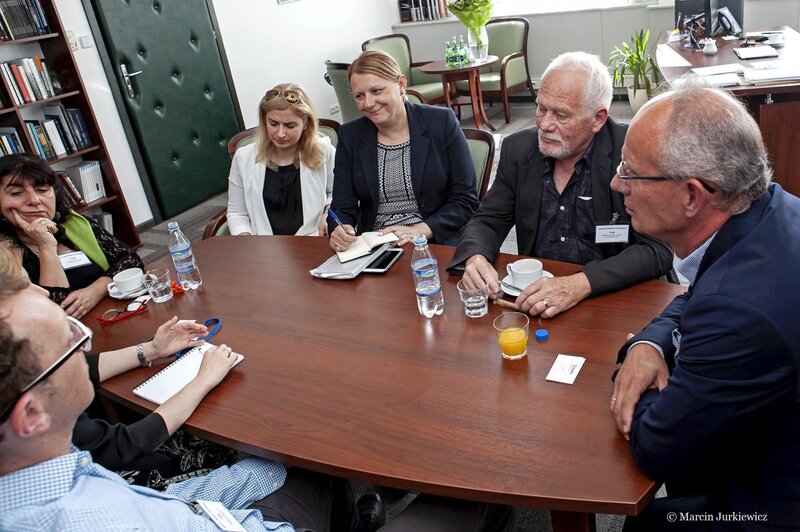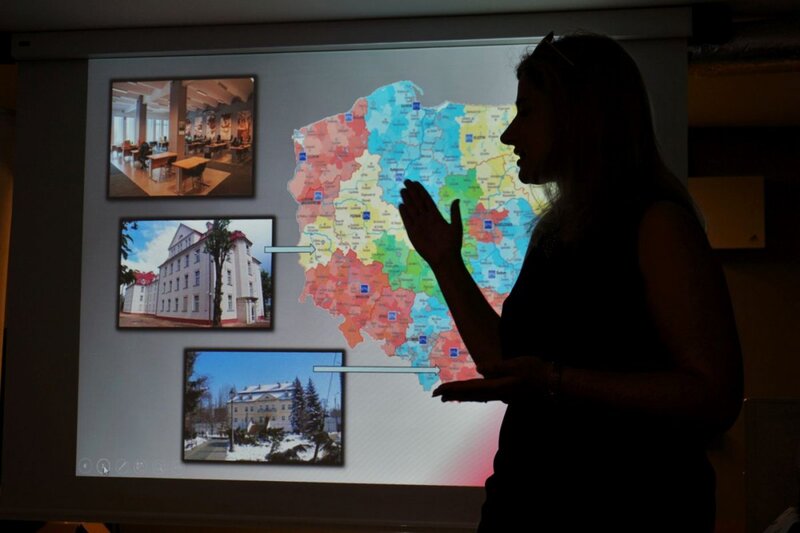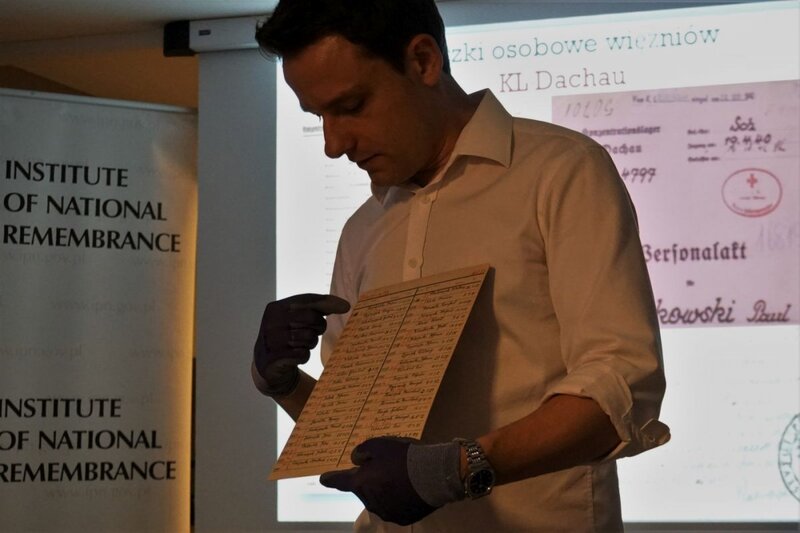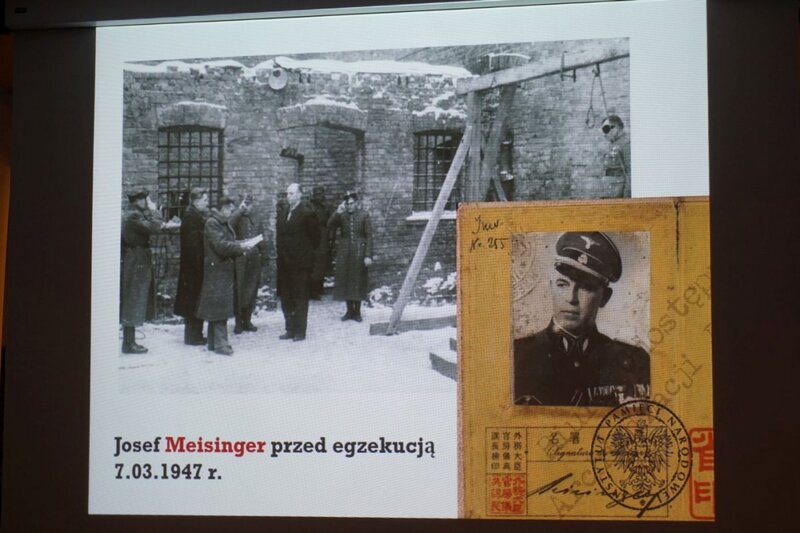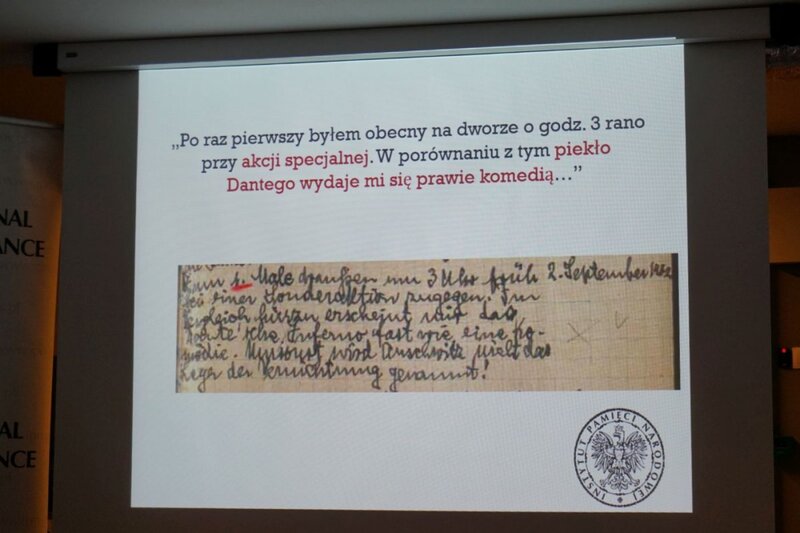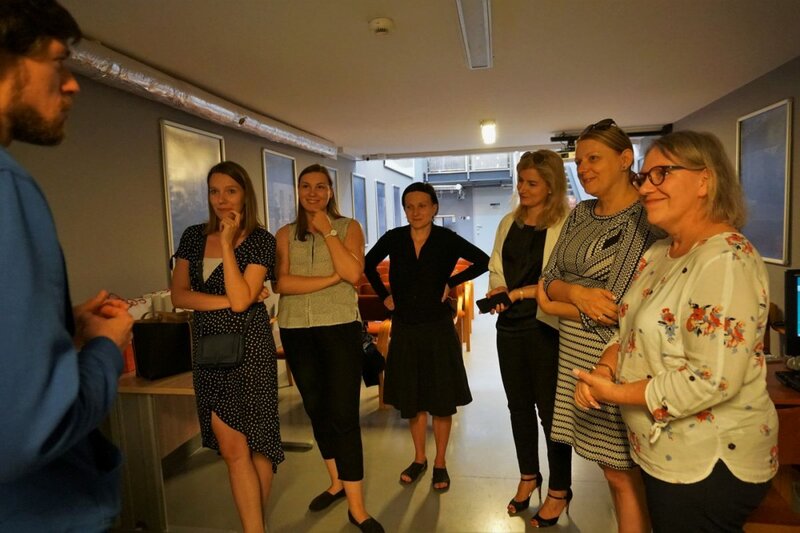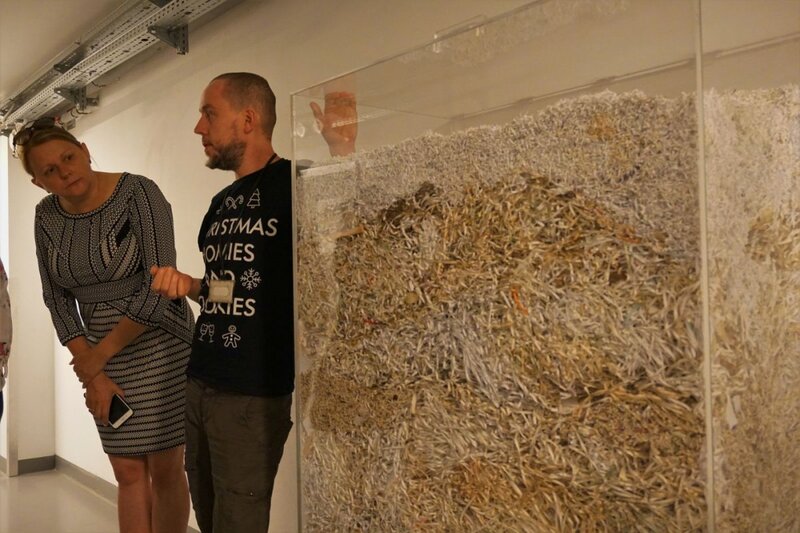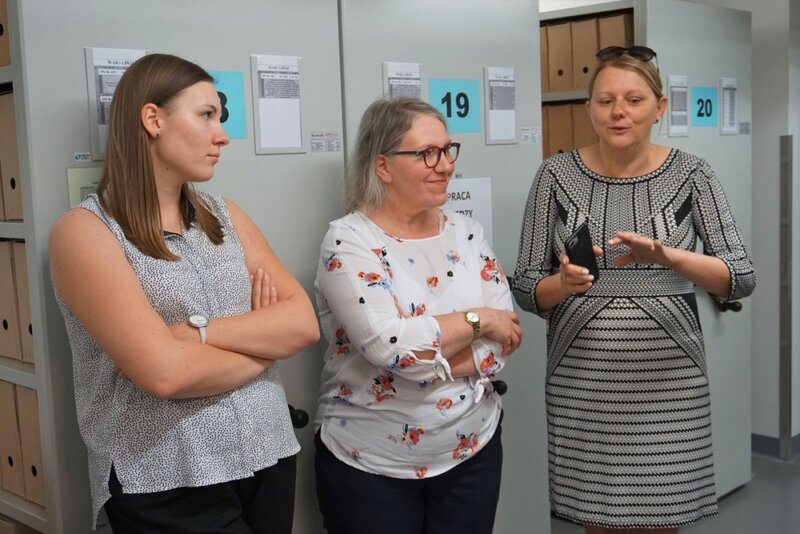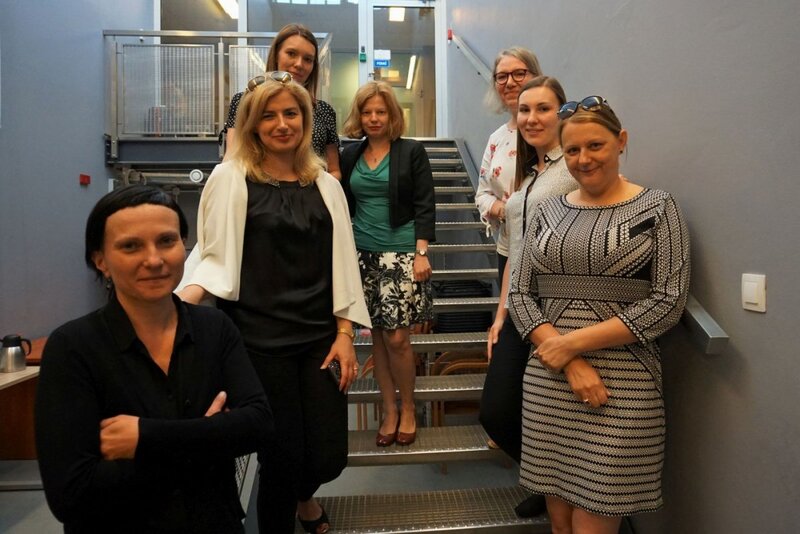President Szwagrzyk thanked the guests for the ongoing lively cooperation between the Institute of National Remembrance and Australian organizations such as the Australian Society of Polish Jews, the Board of the Pilecki Project Committee and the Polish Community Council of Victoria or the Polish Home Army Ex-Servicemen Association. Its effect was the organization of a series of events such as the presentation of an exhibition on Captain Witold Pilecki, the Warsaw Uprising and the participation of Australian soldiers in the Uprising at the Federation Square and the Kadimah Jewish Cultural Centre and National Library in Melbourne (November 2017) and later at the Parliament of Victoria (in May 2018). The last was accompanied by two exhibitions by the Institute of National Remembrance: "Samaritans from Markowa" and "Żegota – The Council for Aid to Jews". There are further plans to show the above exhibitions in the Parliament in Canberra and, as far as the "Samaritans from Markowa" are concerned, in the Kadimah Jewish Cultural Centre. Moreover, the IPN is further planning to print more copies of the book entitled ‘Report W’ – a report by Captain Witold Pilecki in the translation of Eva Hussain, for the composition and release of which the IPN was responsible. The Association is also trying to organize a study visit to Poland for Australian parliamentarians. Willingness to continue cooperation was expressed by all of the participants of the meeting.
President Szwagrzyk pointed out that the Polish-Jewish difficult history is, nontheless, linked by such figures as Captain Witold Pilecki, a "volunteer to Auschwitz" who - as he emphasized - was an important figure not only for Poles but for the whole world. As the Director of the Office of Search and Identification, he discussed the activities of this department, which has been conducting its activities since 2003, with particular emphasis on the work carried out at lot “Ł” of the Powązki Cemetery in Warsaw. It is a bitter irony that in the place where there are nameless mass graves of Polish heroes who were murdered or tortured in Stalinist prisons, communist officials, judges and prosecutors were buried with honors in the eighties of the twentieth century, in essence - their executioners. Until now, 60 Stalinist prisoners have been identified on the basis of genetic material collected from families. Professor Szwagrzyk expressed deep hope that among the remains discovered in this area there are the remains of Captain Pilecki.
Both sides expressed the need to conduct Polish-Jewish dialogue in an atmosphere of mutual respect and understanding of national sensitivity, pointing to the suffering of both nations during the Second World War. It was emphasized that education was a key issue in improving mutual relations. There is a lot of hope in the younger generation which, thanks to in-depth knowledge and rejection of stereotypes, will be able to build bridges between nations.
The official meeting was preceded by a visit to the Institute's Archive with the participation of Eva Hussein, Deputy President of the Australian Society of Polish Jews as well as Paula Baranowska, Marta Daszkiewicz-Daniszewska, Dorota Makowska, Wanda Baranowska and Joanna Filip, representing the “Polaron” European Citizenship in Poland. Agnieszka Jędrzak, head of the Division of International Relations at the Office of the President presented the most interesting documents from the archival resources of the Institute of National Remembrance as well as history, mission, activities and major international projects of the Institute. The guests were primarily interested in the rules governing access to archival documentation and the process of digitizing documentation, which started in 2006. They were also impressed by the the Institute's photo resources (about 40 million photos). They were also interested in the Custodian of National Memory Prize aroused, which has been awarded since July 2002 for commemorating the history of the Polish Nation.
Jacek Ryżko, team coordinator at the Center for Information on the Victims of World War II presented the guests with the specificity of documentation on Soviet and German repressions, as well as databases and tasks of the Center. The guests were particularly interested in original materials from German concentration camps, including documents concerning the Captain Witold Pilecki, one of the bravest people in the resistance movement in World War II. The IPN is in possession of the documents informing that a captain under the name Tomasz Serafiński voluntarily got to Auschwitz as prisoner no. 4859 in order to organize a military conspiracy and obtain data on the crimes committed by the Germans. It is worth noting that Eva Hussein translated his Report W into English, a collection documenting the situation in the German concentration camp. The resources of the IPN also include materials from the Stalinist period on the subject of the Captain, including inspection reports, hearings reports, decisions to initiate investigations, underground records, documents stolen from the Ministry of Public Security and reports, a decision to prosecute and the act of indictment.
In addition, Mirosław Peregończuk presented the functions and tasks of the videocomparator. Furthermore, the guests had an opportunity to visit the warehouse with military documentation, where Krzysztof Wojda showed them archival materials from the post-war period and a secret map containing plans of the USSR and NATO for World War III, where atomic targets were marked.
